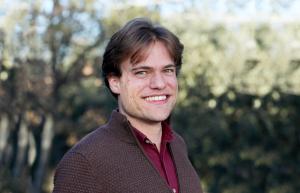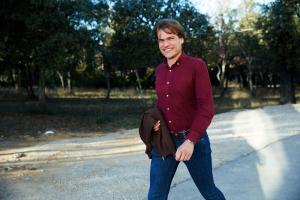Staff Stories

#try to make it a better place;
#European Union;
#Science Division;
#living in Provence;
#accountability;
Timo Ravensbergen is a Plasma Control Scientist in the Science Division. The Science Division’s role is to make preparations for the effective use of the ITER tokamak and to support the ongoing engineering efforts to assemble the machine with a solid physics basis. As a Plasma Control Scientist, Timo collaborates in the design of a plasma control system (PCS)—what he calls the tokamak’s “cruise control”—that will help the tokamak achieve and maintain the conditions necessary for sustaining and manipulating plasma. Specifically, Timo helps in the development of fast, lightweight algorithms capable of executing specific control tasks and making sure they are properly embedded in the PCS architecture, its interfacing systems, and their commissioning plans. He also participates in ongoing plasma control research on existing tokamaks around the world to “pave the way for ITER.”
"I am proud to be working on innovative fusion technology that uses natural resources like seawater to extract a large portion of the fuel needed to carry on the world’s energy needs for hundreds of thousands of years.”
Timo is impressed by ITER’s role in challenging stereotypes, both his own and those of others. It is human to make assumptions about other countries, cultures, generations, etc., based on media and political depictions. However, the diversity at ITER affords its team members the opportunity to disprove these assumptions. “You suddenly have all these cultures you would normally not meet working together in this place and then you realize, like, ‘okay, they’re nice people.’ We step over big political problems and still work together.”
Though Timo was hired for his excellent qualifications, he is young compared to the average ITER employee. This can sometimes make it difficult to be taken seriously in formal design reviews or other high-level meetings with many new faces. But when innovators from different generations collaborate, there is an intersection of trusted expertise and fresh, cutting-edge research. “The advantage is that I am never the smartest in the room. There are always people that I can learn from and who have way more experience.” This intergenerational collaboration further dispels age stereotypes while allowing seasoned employees to guide newcomers toward becoming the future leaders of the project.
The hierarchical structure at ITER was a challenge for Timo at first. “Having worked in a research institute with a flat hierarchy and daily interactions with the directors, it was alien to me.” However, Timo came to recognize some of the benefits of a clear hierarchy, which makes it easier to trace accountabilities and responsibilities and to feel more protected by management for issues well above his expertise. For example, he appreciates being able to surrender burdensome political and administrative matters to managers who have more experience and the authority to back up weighty diplomatic decisions, allowing him to focus on more scientific problems. “Still very important issues, but ones that I can solve.”

After three years of living in Provence, Timo says life in the south of France still feels surreal. “I massively enjoy the hikes, the swimming in offensively blue water, long lunches on Saturdays, and taking my car on the twisty mountain roads in the Luberon region," he says. "And Marseille is always close for techno festivals and multicultural food. I am convinced there are few places on the planet where you can combine my niche, rewarding job with such surroundings.”
